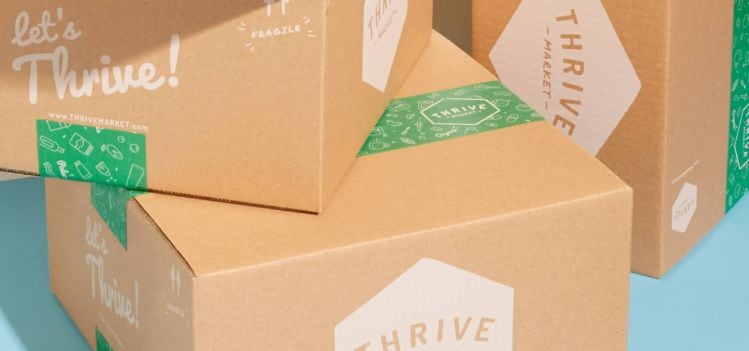In a blog post dated June 17, Thrive Market CEO Nick Green said: “In early June, we received a notice from our merchant processor demanding that we cease the sale of all hemp and CBD products on Thrive Market.
"We unfortunately have no choice but to comply, and we'll begin removing our assortment as early as Thursday, June 20.
Green, who argued that “CBD is neither psychoactive nor harmful,” added: “We believe that ethical and sustainable hemp is another cause worth fighting for, so rest assured that we will be working behind the scenes in the coming weeks to get hemp products back on Thrive Market. In fact, we're already in conversations with a new processing partner to try to make that happen.”
NCIA: We predict a significant decrease in CBD sales within the next few months’ if card brands don’t get ‘reassurance’
In a lengthy comment submitted to the FDA ahead of its May 31 public meeting on cannabis, the National Cannabis Industry Association (NCIA) warned that, “If we do not succeed in working together to reassure the card brands that they can safely support our industry, then we predict a significant decrease in CBD sales within the next few months.”
Evalon, a subsidiary of U.S. Bank, recently stopped offering merchant services to hemp-derived CBD businesses (ie. it stopped allowing them to accept secure credit or debit card transactions) owing to the lack of clarity on how the FDA intends to regulate the industry, noted the NCIA.
Urging the FDA to come up with an ‘interim fix’ to ensure members retain access to professional services while the FDA comes up with a regulatory pathway for CBD, the NCIA added: “Banks, insurance companies, and other professional entities do not currently understand the regulatory landscape, and as a result, many CBD companies are at risk of losing necessary professional services.”
NCIA: FDA should distinguish between isolates and non-standardized hemp extracts
While the FDA has made it clear that CBD is not permitted in foods and supplements as it was first investigated as a drug, it should now take steps to “properly distinguish between CBD isolate and non-standardized hemp extract that contains naturally occurring cannabinoids, including CBD,” argued the NCIA.
FDA: 'Unresolved questions regarding the cumulative exposure to CBD'
The FDA recently noted that its review of the marketing application for Epidiolex (an approved drug featuring isolated CBD) had “identified certain safety risks, including the potential for liver injury.”
It also referred to “unresolved questions regarding the cumulative exposure to CBD if people access it across a broad range of consumer products,” and questioned “whether some threshold level of CBD could be allowed in foods without undermining the drug approval process or diminishing commercial incentives for further clinical study of the relevant drug substance.”
Attorney: 'Do not expect any sudden movement by the FDA'
Speaking to FoodNavigator-USA after the FDA's recent public meeting, Angela Spivey, partner at law firm Alston & Bird, said: "Overall, acting FDA Commissioner Dr. Ned Sharpless’ comments seem to suggest he may take a harder line than the former Commissioner Dr. Scott Gottlieb in finding a path forward for use of CBD in food and dietary supplements...
"He discussed the 'real risks' he perceives THC and CBD to pose and expressed that 'critical questions remain about the safety of widespread use.'
"In short, do not expect any sudden movement by the FDA to forge a path forward to allow CBD in FDA-regulated products. That being said... FDA acknowledged the horse is out of the barn and although this concerns Commissioner Sharpless, the FDA did not signal an intent to corral the herds absent unfounded health or disease claims."

